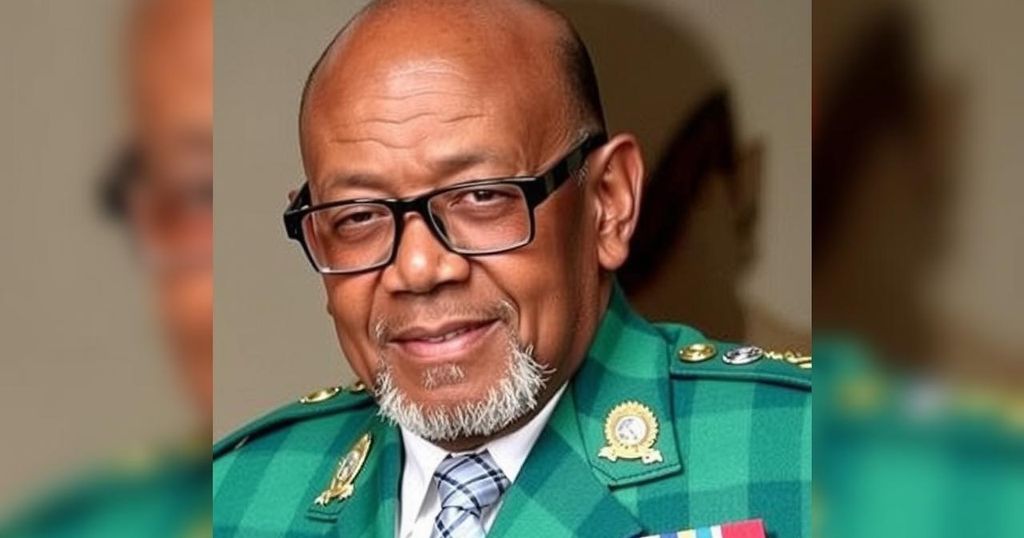Former Suriname dictator Desi Bouterse has died at 79, evading justice for political murders and drug trafficking despite maintaining popularity among some citizens. His legacy is contentious due to his role in orchestrating violence and subsequent conviction for human rights abuses. Leaders express condolences as his supporters gather for a farewell amid the backdrop of his controversial life.
Desi Bouterse, the former military dictator and president of Suriname, passed away at the age of 79, as confirmed by the government on Wednesday. His death follows a fleeting illness, and he died while evading justice for the politically motivated killings he orchestrated. Bouterse gained notoriety in Suriname after executing a coup in 1980 and subsequently initiated significant social policies, earning popularity among lower-income citizens. His legacy, however, is marred by international allegations of drug trafficking and the conviction for the 1982 extrajudicial killings of 15 political opponents, which he always denied. Despite his fugitive status, many of his supporters and party members gathered to pay tribute upon learning of his sudden demise.
Desi Bouterse’s rise to power began in the 1980s, following a military coup that marked a shift from Suriname’s previous government. Although he initially garnered support through military might and later pursued democratic means, his tenure was clouded by serious allegations of human rights abuses and criminal activities, including drug trafficking. Throughout his life, Bouterse faced numerous charges that reflected the complexities of Suriname’s political landscape, illustrating the tensions between his populist approach and the justice system. The accusations culminated in a conviction following a lengthy trial that excluded him from court appearances, highlighting the struggles of post-colonial governance in South America.
Desi Bouterse’s death signals the end of an era marked by deep political divides and controversy in Suriname. While he was a controversial figure who evaded justice for significant crimes, his policies on social welfare provided him with enduring support from a segment of the population. His legacy will likely continue to evoke strong reactions, reflecting the ongoing challenges of reconciling governance with accountability in the region.
Original Source: www.insidenova.com






